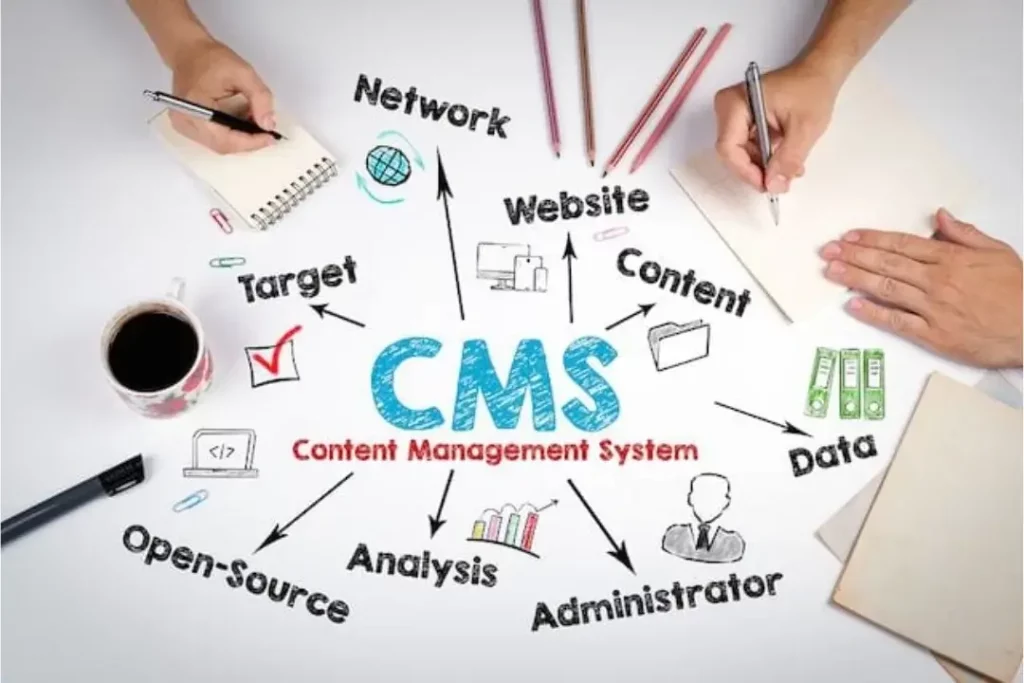
Fueling Growth: Why SEO is Important For Small Businesses?
When you need a quick haircut or a tasty pizza, you’re more likely to choose from the options on the first page of your search results, right? That’s the prime real estate of the internet, and SEO helps you claim your spot there. If you want the most online traffic your websites needs to be on the first page of search results like your shop on the busiest street corner, where everyone is hanging out! You don’t need to be a computer professional to learn SEO. So let’s get started to know why SEO is important for small businesses. In this blog, we will discuss how SEO can help your business to grow.
Table of Contents
What is SEO?
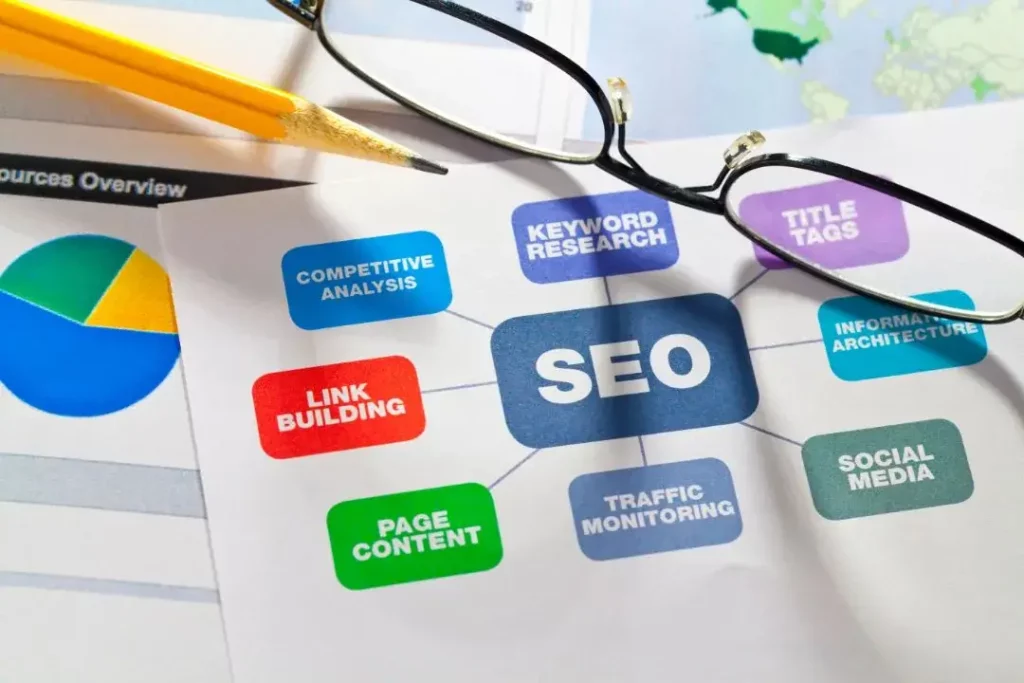
SEO, or Search Engine Optimization, is a set of techniques to make websites more visible and understandable to search engines like Google. In other words, SEO is like preparing your website to express the same language as search engines. By using the right words, arranging your content in a structured way, and ensuring your website is well-built, you increase the chances of your website showing up when someone looks for things online. SEO aims to ensure your website is effortlessly discoverable by search engines and gets the attention it deserves.
Why SEO is Important For Small Businesses in Pakistan?
User-Friendly Websites
SEO isn’t just about better ranks on search engines, keywords, and links. It’s a path to create user-friendly websites as well! By improving your website’s settings and content and easing the navigation, SEO helps create a happier place for your visitors. Modern SEO practices prioritize the quality of user experience, resulting in more satisfied visitors and potentially returning customers.
Bring in MORE Customers
One of the main reasons to have a website is to be noticeable to potential customers. Chalking out an effective SEO strategy doubles your chances for business expansion by drawing in quality leads that actively seek your offerings and are ready to convert.
Cost Effective

When we talk about promoting a business, usually big numbers pop up. Yet, with SEO, it’s different! Search Engine Optimization is one of the most affordable marketing strategies because it targets users already interested in your offering. Hence, yielding higher ROIs than any other marketing method.
Better Conversion Rates
SEO-optimized websites load faster, are easier to navigate, and are compatible with mobile & tablets. These factors contribute to better conversion rates, which means the visitors coming to your website are more likely to become your loyal customers.
Build Brand Awareness
An SEO-optimized site can better rank; a high-ranking site creates brand recognition and trust. Subconsciously, viewers trust search engines. If your small business is listed at the top, your potential customers are more likely to trust and relate to your offerings.
Competitive Advantage
Being noticed on the first page of search engine results builds credibility and trust among users. And hence, SEO offers a competitive advantage. Your business standing strong among well-established competitors positions you as a leader in your field and captures more market share.
Long-Term Results
SEO takes time to complete and requires persistent efforts, but the results are also long-lasting. Once properly implemented, a site can maintain its top ranking for a considerable time, bringing constant profits and prospects.
SEO Strategies For Small Businesses That Can’t Be Ignored
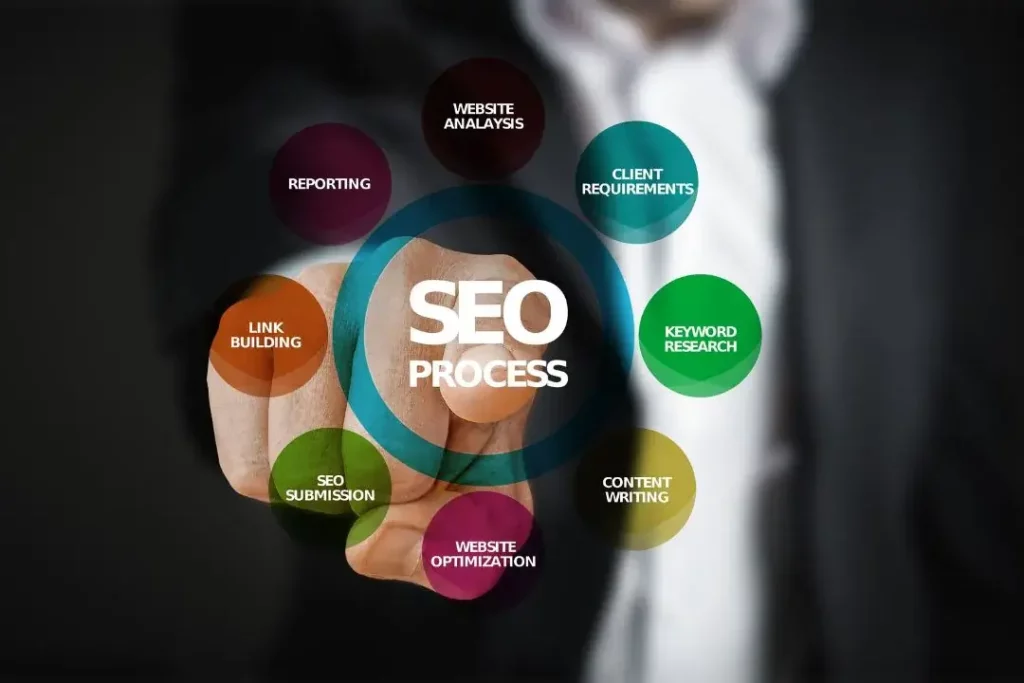
Implementing these detailed strategies for appropriate keyword use, quality content creation, link building, and enhancing user experience can significantly enhance your small business’s SEO efforts. Remember that SEO is an ongoing process, and continuous monitoring and adjustment are key to maintaining and improving your online visibility.
Appropriate Use of Keywords
In search engine optimization, the main building blocks are keywords. These are the actual words and phrases that individuals type into search engines to find info, products, or services. To boost your website’s search engine results page (SERP) visibility, skillful utilization of keywords is necessary. However, it’s crucial to use them intelligently and naturally to evade the penalty of excessive keyword stuffing, which can be imposed by search engines.
Keyword Research

Effective keyword usage begins with thorough research. Use keyword research tools like Google Keyword Planner, SEMrush, or Ahrefs to identify relevant keywords for your business. Focus on a mix of short-tail and long-tail keywords that accurately represent your products or services.
Long-Tail Keywords
In New York, if there’s a bakery and they want quality and potential customers, then specific long-tail keywords are the way to go instead of generic short-tail keywords. One example of a specific keyword is “best gluten-free bakery in New York.” These types of words have a better chance of converting individuals than their well-known counterpart because they attract individuals who have a specific need instead of a general one.
Keyword Placement
Place your chosen keywords strategically within your content:
- Title Tags and Meta Descriptions: Include relevant keywords in your page’s title tag and meta description to give search engines an idea of your content’s topic.
- Headers and Subheadings: Incorporate keywords in your headers (H1, H2, H3) to improve the structure and organization of your content.
- Body Content: Integrate keywords naturally in your content without overloading. Aim for readability and coherence.
Latent Semantic Indexing (LSI)
Search engines now consider context and topic relevance. Use LSI keywords, which are terms related to your main keywords, to provide a more comprehensive understanding of your content’s subject matter.
Quality Content Creation

Content is king in the realm of SEO. High-quality, valuable, and relevant content not only attracts visitors but also encourages them to spend more time on your website, reducing bounce rates and signaling to search engines that your site is authoritative.
1.Audience-Centric Content
Understand your target audience’s needs, questions, and interests. Craft content that directly addresses these aspects. This can include how-to guides, tutorials, product reviews, and industry insights.
2.Originality and Uniqueness
Avoid duplicate content as it can lead to SEO penalties. Create original content that provides a fresh perspective or adds new value to existing topics. Plagiarism should be strictly avoided.
3.Multimedia Integration
Incorporate images, videos, infographics, and interactive elements into your content. Visual and multimedia-rich content enhances user engagement and makes your content more shareable.
4.Readability and Structure
Format your content for easy readability:
- Use short paragraphs and concise sentences.
- Employ bullet points and subheadings to break up content.
- Use bold or italic text to emphasize key points.
Link Building
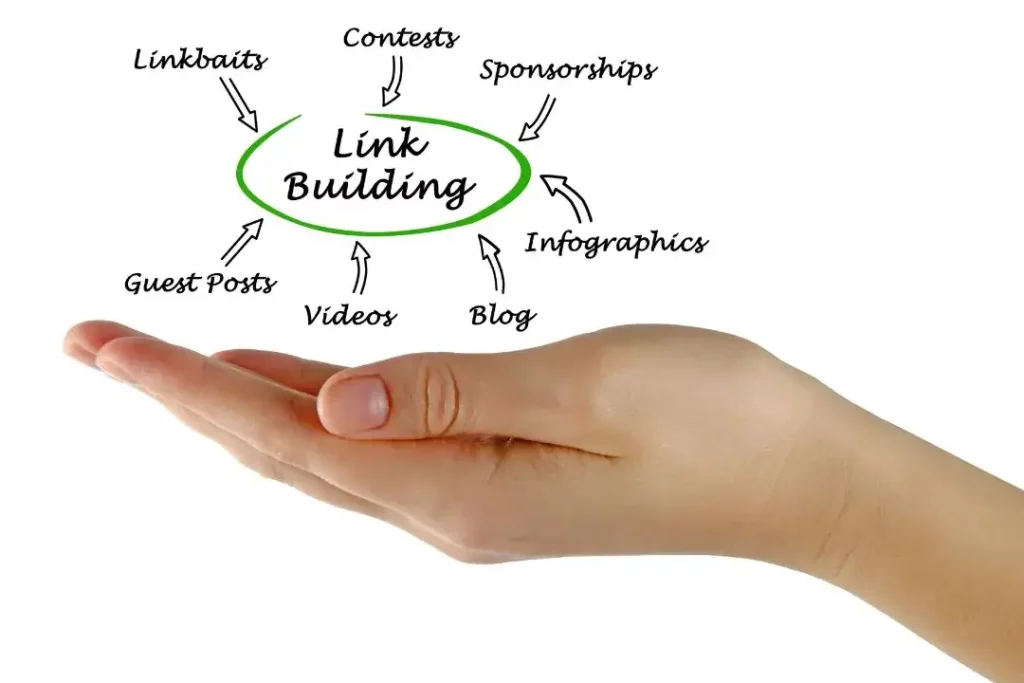
Link building is a crucial aspect of SEO. It involves acquiring backlinks from other reputable websites to your own. These backlinks signal to search engines that your site is trustworthy and authoritative.
Quality over Quantity
Focus on obtaining high-quality backlinks from relevant, authoritative sources. A single backlink from a reputable industry website can have more impact than several from low-quality sites.
Natural Link Building
Avoid buying links or participating in link schemes, as this can lead to severe penalties. Instead, focus on earning links naturally through valuable content, guest posting, and networking.
Guest Posting
Write informative and well-researched guest posts for reputable websites in your industry. In your author bio or within the content, include a link back to your website. Guest posting not only earns you backlinks but also exposes your brand to new audiences.
Broken Link Building
Identify broken links on other websites that lead to content similar to yours. Reach out to the website owner and suggest replacing the broken link with a link to your relevant content.
User Experience (UX)

A positive user experience not only keeps visitors engaged but also sends positive signals to search engines. A website that loads quickly, is easy to navigate, and provides valuable content is likely to rank higher in search results.
Mobile-Friendly Design
With a significant portion of web traffic coming from mobile devices, ensure your website is responsive and works seamlessly on various screen sizes.
Page Loading Speed
Optimize your website’s performance to ensure fast loading times. Compress images, use browser caching, and minimize unnecessary scripts to improve page speed.
Clear Navigation
Make your website’s navigation intuitive and user-friendly. Use descriptive menu labels and categorize content logically.
Reduce Bounce Rates
High bounce rates can negatively impact your SEO. Keep visitors engaged with valuable content, compelling calls-to-action, and related post suggestions.
Conclusion:
In conclusion, there are tangible benefits to why SEO is important for small businesses. It’s about creating stronger ties with prospective customers and building a potent brand image among competitors while planning cost-effective and long-term yielding strategies that suit small business budgets. The continuous and mindful application of SEO broadens your reach to more significant audiences and facilitates creating a user-friendly environment that indeed aids in increased visitor engagement.
Frequently Asked questions
Because SEO (Search Engine Optimization) boosts your online visibility, making it more straightforward for potential customers to find you on search engines like Google. More visibility means more chances to grow your business.
Search Engine Optimization optimizes your website so it appears higher in search results. Being on the first page of Google grabs attention and builds trust – showing you’re a reliable choice amidst the competition.
Absolutely! When your website ranks higher, more people visit it. And more visitors often mean more sales opportunities. SEO drives targeted traffic that’s interested in what you offer.
Definitely! While social media is great for engagement, SEO focuses on getting you discovered when people search for your products or services. It complements your social efforts.
Ads can be effective, but they cost money and stop working when you stop paying. SEO is a long-term investment that brings organic (unpaid) traffic, making your business sustainable.
Local SEO targets nearby customers looking for your offerings. It puts you on the map, making it easy for locals to find and choose your business.
It’s ongoing. Search engines update their algorithms, and your competitors don’t stand still. Regularly updating and refining your SEO keeps you ahead of the curve.
SEO takes time, usually a few months, to see noticeable improvements. Patience pays off – once your rankings rise, the benefits keep growing.
Yes, indeed! Mobile optimization is crucial. More and more people search on mobile devices. Google also considers mobile-friendliness when ranking websites.
Absolutely! Slow websites turn visitors away. Plus, search engines prefer fast-loading sites, so optimizing your site’s speed helps your SEO ranking.

Types of CMS
Crack The Code: Discover the 8 Types of CMS You Must Know! A Content Management System (CMS) is a software platform that allows you to create, edit, organize, and publish content. The need for technical skills is greatly diminished as we navigate through the progressively digitizing times. CMS has surfaced
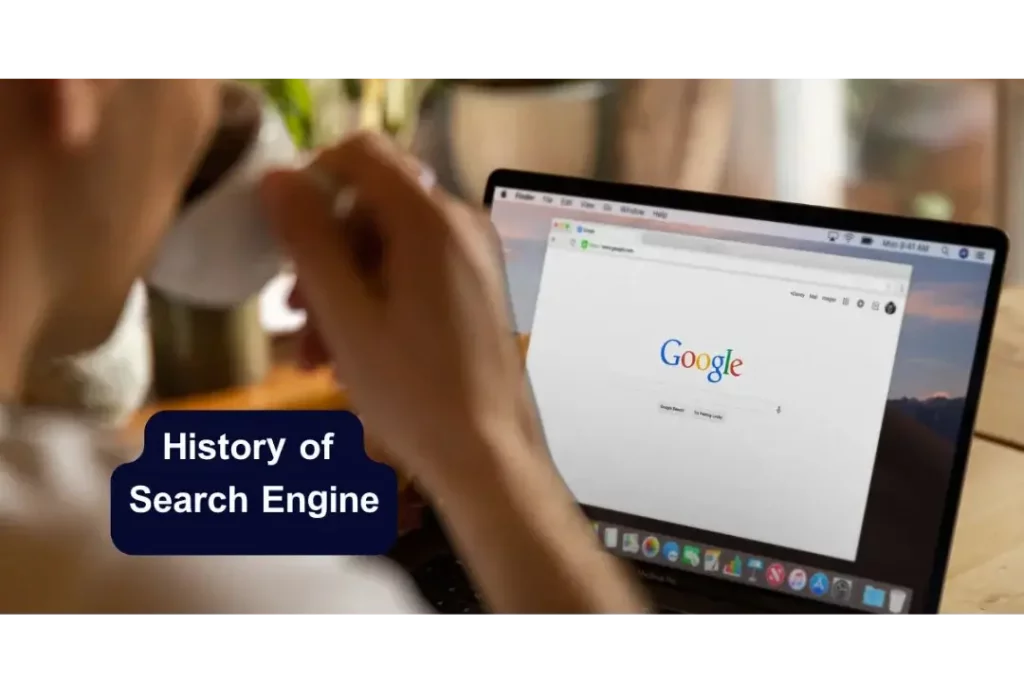
History of Search Engines
A Look Back Into The History of Search Engines Have you ever stopped to wonder about life without search engines: our friendly assistants that hang out on our smartphones, tablets, and computers, ready to answer our every question? This wasn’t always the case. In the past, searching meant trawling

Benefits of SEO for Small Business
Benefits of SEO for small business by which you can give tough competition to your competitors Nowadays, everyone is in a race to learn how to earn money. For this, they search on Google and get the answer to start an online business. They start a small business with some
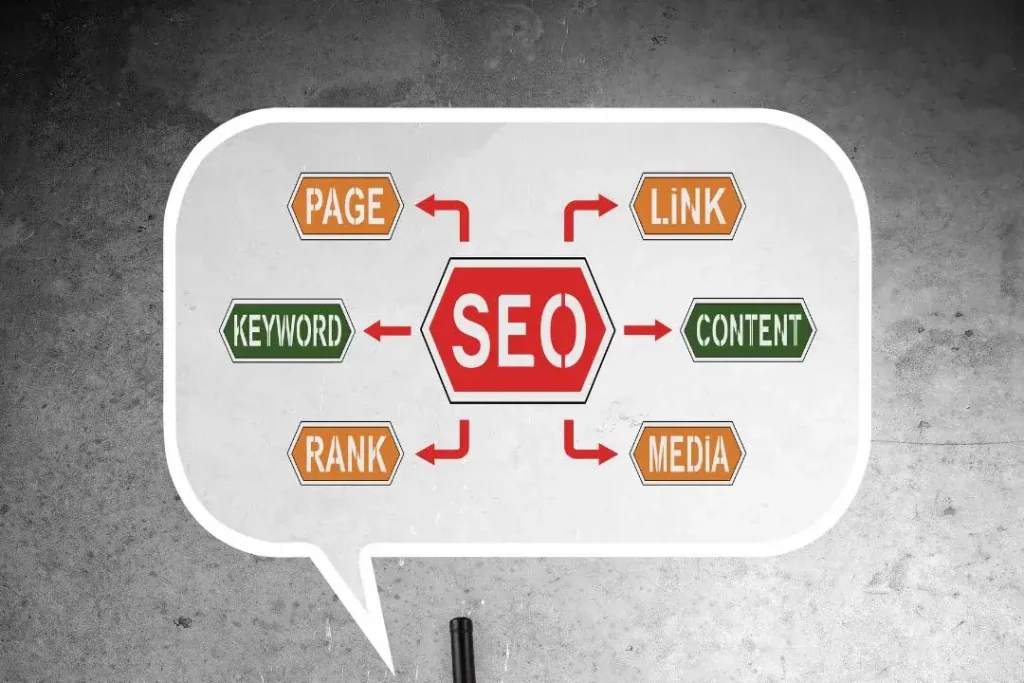
SEO Meaning in Urdu
What is SEO Meaning in Urdu? Ever heard of “Search Engine Optimization” or SEO? In today’s internet age, this clever tactic helps us find what we need pronto. Do you think you know how Google has all the answers? SEO is the undercover agent that helps sites speak the same

How to Choose the Best SEO Company in Pakistan
Skyrocket Your Rankings: How to Choose the Best SEO Company in Pakistan “Decoding Perfection: Your Path to the Top SEO Company in Pakistan”Today, determining the right SEO company for your business needs may seem daunting – especially in a populous South Asian country like Pakistan, where numerous SEO agencies offer

What is a Soft 404 Error
What is a Soft 404 Error – Why It Matters and Why You Can’t Ignore It? In the vast realm of the internet, errors are commonplace. However, one such error that has perplexed web admins and SEO professionals alike is the Soft 404 error. A soft 404 error on a

